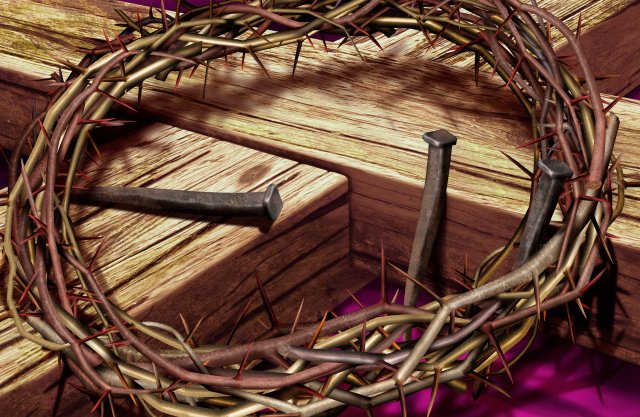
Why Good Friday Matters, by Emman Usman Shehu
On a quiet spring morning, as the first rays of dawn pierce the horizon, millions of Christians worldwide pause to observe Good Friday, a day steeped in solemnity and profound spiritual significance. For believers, it marks the crucifixion and death of Jesus Christ, an event that lies at the heart of Christian theology. Yet, in an increasingly secular world, where religious observances often compete with the clamour of modern life, the question arises: Why does Good Friday still matter? Beyond its religious roots, this day offers a universal meditation on sacrifice, redemption, and the human condition—a resonance that transcends faith and speaks to the shared struggles of humanity.
The Historical and Theological Core
Good Friday, observed on the Friday before Easter Sunday, commemorates the day Jesus was tried, crucified, and buried, according to the New Testament. The term “Good” may seem paradoxical, given the day’s association with suffering and death. Some scholars suggest the word derives from an older English usage of “good”, meaning “holy” or “pious.” Others propose it reflects the belief that Christ’s death was “good” in its redemptive purpose, a sacrifice that, in Christian doctrine, atoned for humanity’s sins and opened the path to salvation.
The narrative, drawn from the Gospels, is both stark and vivid. Jesus, betrayed by Judas, is arrested, tried by Pontius Pilate, and sentenced to death by crucifixion—a brutal form of execution reserved for Rome’s worst criminals. He endures mockery, scourging, and the agony of the cross, where he utters his final words: “It is finished.” For Christians, this moment is not merely a historical event but the fulcrum of their faith, embodying God’s love and the promise of resurrection, celebrated on Easter.
Theologically, Good Friday is inseparable from the concept of atonement. In traditional Christian thought, Christ’s death serves as a substitutionary sacrifice, bearing the weight of human sin to reconcile humanity with God. As Rev. Dr. Serene Jones, president of Union Theological Seminary, explains, “Good Friday is about confronting the reality of human brokenness and divine grace. It’s a day that forces us to face the cost of love.” This idea resonates deeply in Christian communities, where the day is marked by fasting, prayer, and somber liturgies, such as the Stations of the Cross or the Veneration of the Cross.
Yet, the significance of Good Friday extends beyond theology. Its themes—suffering, sacrifice, and the search for meaning—mirror universal human experiences, inviting reflection even among those who do not share the Christian faith.
READ ALSO: Shaka Ssali: The voice that bridged a continent, by Emman Usman Shehu
A Day of Global Observance
Good Friday’s observance varies widely across cultures and denominations, reflecting the diversity of global Christianity. In Jerusalem, pilgrims walk the Via Dolorosa, retracing Jesus’ steps to the cross. In the Philippines, devout Catholics participate in reenactments of the crucifixion, some even volunteering to be nailed to crosses in a controversial display of devotion. In Western churches, services often feature darkened sanctuaries, stripped altars, and the reading of the Passion narrative. In Orthodox traditions, the Epitaphios—a cloth icon of Christ’s body—is venerated in a mournful procession.
These rituals, though distinct, share a common thread: a deliberate slowing down, a turning inward. In a world addicted to speed and distraction, Good Friday demands pause. “It’s a countercultural moment,” says Father James Martin, a Jesuit priest and author. “In the silence of Good Friday, we’re invited to sit with discomfort, to acknowledge pain—our own and others’—without rushing to fix it.”
This call to reflection is especially poignant in 2025, as the world grapples with ongoing challenges: political polarisation, climate crises, and the lingering scars of global conflicts. Good Friday’s emphasis on suffering and solidarity offers a lens through which to view these struggles, urging compassion and collective responsibility.
The Secular Resonance
For non-Christians, Good Friday may seem like a relic of religious tradition, yet its themes strike a chord in secular contexts. The story of a man unjustly condemned, enduring suffering for a greater purpose, echoes in literature, philosophy, and social justice movements. From Socrates’ willing acceptance of death to Mahatma Gandhi’s nonviolent resistance, the archetype of sacrificial love permeates human history.
In recent years, Good Friday has found parallels in activism. The image of the cross—a symbol of state-sanctioned violence—resonates with those who protest systemic injustice. “The crucifixion was a public execution, a warning to dissenters,” notes Dr. Cornel West, a philosopher and activist. “Good Friday reminds us that truth-tellers often pay a price, but their witness endures.” Movements like Black Lives Matter or climate activism draw on this imagery, framing sacrifice as a catalyst for change.
Moreover, Good Friday’s focus on suffering speaks to the mental health crisis gripping much of the world. In an era of rising anxiety and isolation, the day offers a space to acknowledge pain without shame. “There’s something liberating about a day that doesn’t demand happiness,” says Dr. Rachel Naomi Remen, a physician and author. “Good Friday says it’s okay to grieve, to feel the weight of the world. That honesty is healing.”
Good Friday in a Pluralistic World
As societies grow more diverse, Good Friday’s place in public life raises questions. In countries like the United States, where it is not a federal holiday, the day often passes unnoticed outside Christian circles. In contrast, nations like the United Kingdom, Germany, and India recognize it as a public holiday, reflecting their historical or cultural ties to Christianity. This disparity prompts debate about the role of religious observances in pluralistic societies.
Critics argue that privileging Christian holidays risks alienating non-Christians or reinforcing outdated power structures. Supporters counter that Good Friday, like other religious holidays, enriches cultural heritage and offers shared moments of reflection. “The answer isn’t to erase these days but to expand our calendar,” suggests Dr. Eboo Patel, founder of Interfaith America. “Imagine a society that honours Good Friday alongside Eid, Diwali, and Yom Kippur—not as tokens, but as invitations to learn from one another.”
This interfaith perspective highlights Good Friday’s potential as a bridge. The day’s themes of sacrifice and redemption find echoes in other traditions. In Islam, the concept of sabr (patience in suffering) parallels the endurance of the cross. In Buddhism, the acceptance of suffering as part of existence aligns with Good Friday’s unflinching gaze at pain. By engaging these connections, Good Friday can foster dialogue rather than division.
The Personal and the Political
On a personal level, Good Friday invites introspection. For some, it’s a time to confront personal failings or recommit to ethical living. For others, it’s a moment to mourn losses—whether of loved ones, dreams, or innocence. “Good Friday feels like permission to be human,” says Maria Gonzalez, a teacher in Chicago who attends a bilingual Good Friday service each year. “It’s not about pretending everything’s okay. It’s about sitting with the mess and trusting there’s hope on the other side.”
Politically, Good Friday challenges systems of power. The crucifixion was, in part, a clash between a radical teacher and an empire that brooked no dissent. Today, this narrative inspires those who question authority or advocate for the marginalised. In 2020, during the global protests following George Floyd’s death, some clergy drew parallels between Floyd’s public suffering and the cross, framing Good Friday as a call to dismantle oppressive structures.
Yet, the day also cautions against oversimplification. The crucifixion resists being reduced to a political slogan or a feel-good story. It is raw, complex, and unresolved—a story that ends not in triumph but in a tomb. This ambiguity is part of its power, forcing us to wrestle with questions rather than settle for easy answers.
Looking Ahead
As the world hurtles toward an uncertain future, Good Friday’s relevance endures. Its insistence on facing suffering head-on counters the escapism of consumer culture. Its vision of redemption through sacrifice offers hope without denying reality. And its call to solidarity—embodied in Christ’s shared suffering—reminds us that no one is alone in their pain.
In 2025, as churches fill and pilgrims walk ancient paths, Good Friday will continue to matter because it speaks to the heart of what it means to be human. It is a day to mourn, to reflect, to hope—a day that asks us to carry the weight of the cross, if only for a moment, and to find in empathy. Good Friday invites us all to pause, to listen, and to imagine a world made new.
Dr Shehu is the Director, International Institute of Journalism, Abuja.
Follow the Neptune Prime channel on WhatsApp:
Do you have breaking news, interview request, opinion, suggestion, or want your event covered? Email us at neptuneprime2233@gmail.com





